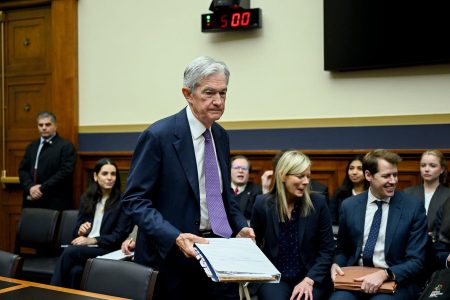Paragraph 1: The Shifting Landscape of Wealth Management
The global wealth management industry faces a period of transformation, driven by economic uncertainties, intergenerational wealth transfers, and the pervasive influence of digital technologies. These forces are reshaping client expectations and demanding a new approach from wealth managers. Europe has emerged as a leader in adapting to these challenges, offering valuable insights for wealth management firms worldwide, particularly in the United States. European firms are embracing sustainability, personalization, and proactive planning for the impending transfer of wealth to the next generation. These trends signal a shift away from traditional investment-focused strategies toward a more holistic and client-centric model.
Paragraph 2: Embracing Sustainability as a Core Value
A defining characteristic of the evolving wealth management landscape is the growing emphasis on sustainable investing. European high-net-worth individuals (HNWIs) are at the forefront of this movement, with a significant majority prioritizing socially and environmentally responsible portfolios. This trend is fueled by younger generations, particularly Millennials and Gen Z, who seek investments aligned with their values. For U.S. wealth managers, this signals a critical need to move beyond simply offering "green" investment products. Authentic integration of sustainability requires demonstrating tangible impact and measurable results. This involves assessing current offerings, identifying gaps in sustainable investment options, developing robust impact metrics in collaboration with industry experts, and transparently communicating the positive outcomes achieved to build client trust.
Paragraph 3: The Rise of Integrated Wealth Planning
European wealth managers are increasingly adopting a more comprehensive approach, evolving from investment advisors to integrated wealth planning partners. This expanded role encompasses a broader range of services, including estate planning, family governance, and philanthropic guidance. This holistic approach addresses the multifaceted needs of multi-generational families, ensuring the preservation and transfer of wealth across generations. For U.S. firms, this highlights the need to expand service offerings beyond traditional investment management. Clients seek advisors who can navigate complexity and provide guidance on achieving long-term family goals. This necessitates broadening service portfolios to incorporate estate planning, financial education for families, and philanthropic advisory services, often through collaboration with specialized experts in these fields.
Paragraph 4: Preparing for Intergenerational Wealth Transfer
A significant challenge and opportunity facing the wealth management industry is the imminent transfer of wealth between generations. European firms are proactively addressing this by aligning financial strategies with the values and priorities of heirs. Younger generations bring distinct perspectives, emphasizing sustainability, innovation, and social impact. U.S. wealth managers must prioritize engaging the next generation to maintain long-term client relationships and ensure a smooth transition of assets. This involves actively involving heirs in philanthropic endeavors and legacy planning, fostering a sense of ownership and responsibility. Understanding and aligning with next-gen values, including their interest in sustainable investing and entrepreneurial ventures, is crucial. Leveraging technology through digital tools, dashboards, and virtual planning platforms caters to the tech-savvy nature of younger clients.
Paragraph 5: Adapting to the New Paradigm
The European experience offers valuable lessons for U.S. wealth managers navigating evolving client expectations. Adapting to the changing landscape requires embracing sustainability as a core value, adopting a holistic approach to wealth planning, and proactively engaging the next generation. Failing to adapt risks falling behind in a rapidly changing industry. Success hinges on finding the right balance between existing strengths and emerging global best practices. This involves critically evaluating current offerings and identifying areas for improvement. A proactive approach to incorporating these changes will not only enable firms to keep pace with evolving client demands but also differentiate them in a competitive market.
Paragraph 6: Building Lasting Client Relationships
Ultimately, the goal of these adaptations is to build enduring client relationships that span generations. By embracing sustainability, providing comprehensive wealth planning services, and engaging the next generation, wealth managers can solidify their position as trusted advisors. This approach strengthens client loyalty and positions firms for long-term success. The emphasis on holistic planning, values alignment, and generational continuity fosters deeper client connections. By demonstrating a commitment to client needs beyond purely financial considerations, wealth managers can build trust and cultivate lasting partnerships that extend beyond individual clients to encompass entire families and their future generations.










